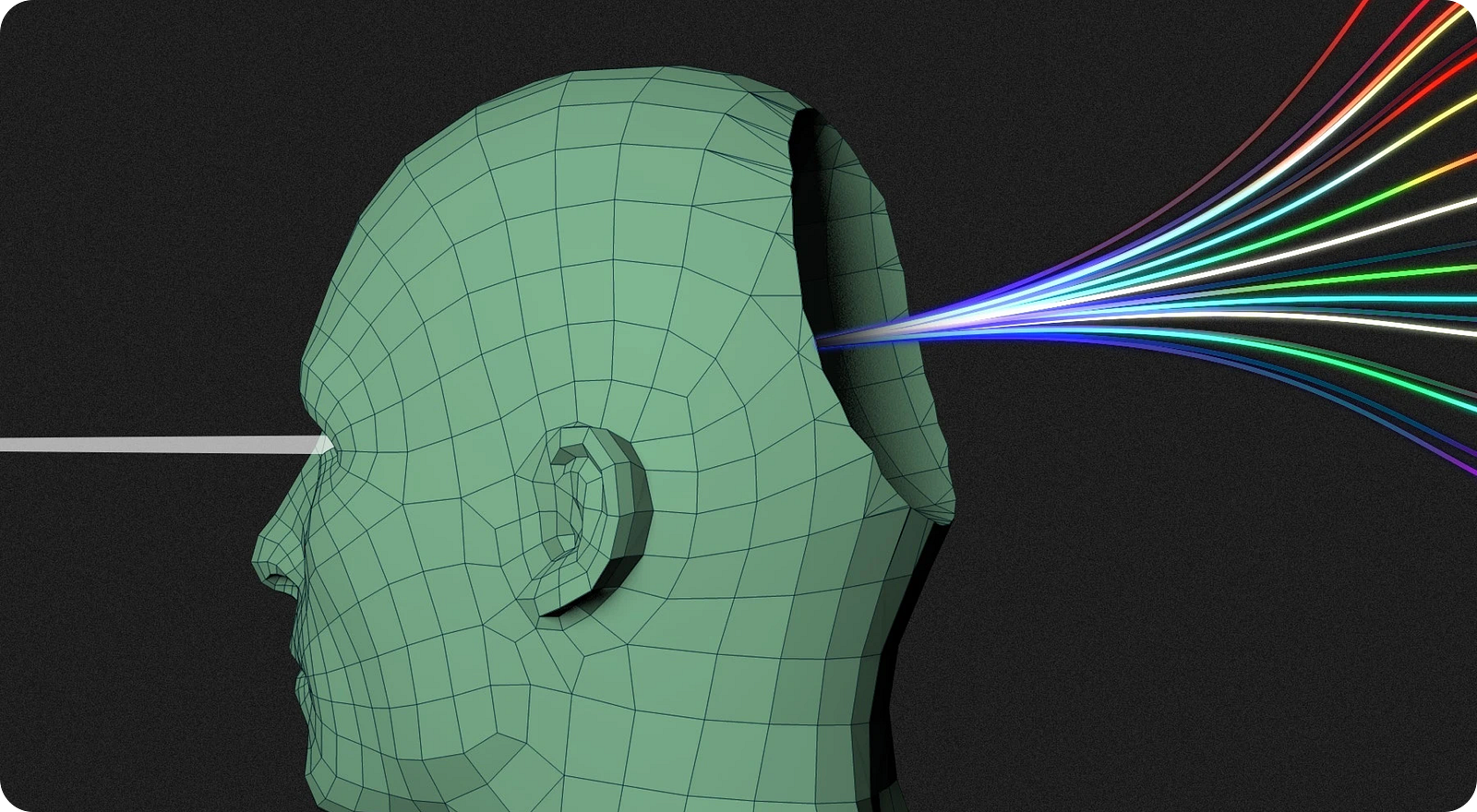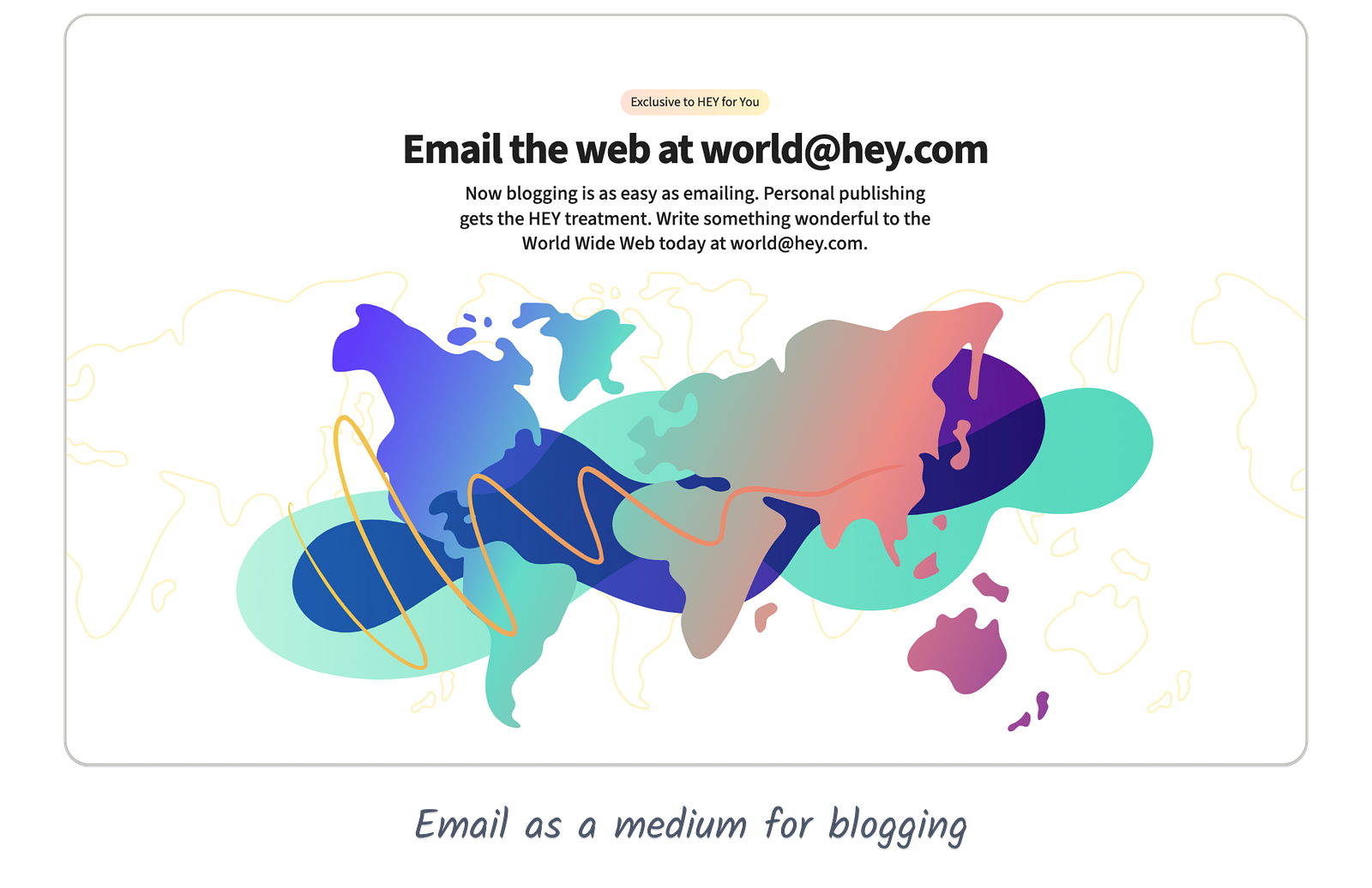🕹 Software as a Medium
Apr 02, 2021 • 5 min • Tech
I've been aware of the phrase, "the medium is the message" for some time but I never knew where it was from. Turns out, it was coined by Marshall McLuhan in his Understanding Media: The Extensions of Man, which was published all the way back in 1964. I'll let McLuhan explain what it means in his own words:
“The medium is the message because it is the medium that shapes and controls the scale and form of human association and action. The content or uses of such media are as diverse as they are ineffectual in shaping the form of human association. Indeed, it is only too typical that the “content” of any medium blinds us to the character of the medium.

I've always liked this mental model, especially as it's applied to technology. It totally makes sense. If you change the environment in which an action is performed, it's going to alter the output of that action, in both conscious and unconscious ways.
Applications in Social
One place where this is particularly relevant today is in social media. You might notice that the content on different platforms is all slightly different. Our psychology is influenced by the environment we are posting in, resulting in different types of posts.
This is where you get LinkedIn posts where every sentence is on a new line. Or single sentence posts on Twitter in all lowercase. The examples are endless:
📲 Text-based
- iMessage
- Medium
- Substack
📸 Image-based
- Snapchat
- Dispo
🎥 Video-based
- FaceTime
- TikTok
- YouTube
- Snapchat
- Netflix
🎧 Audio-based
- Phone calls
- Clubhouse
- Podcasts
On each of these platforms, the outputs are slightly different. Posting a quick selfie on Snapchat is much more acceptable than on Instagram. Want to do well on YouTube? Your production quality needs to be a lot better than on TikTok. This isn't a complete list, but you get the picture.
A Recent Example
I've admittedly buried the lead here, but I hope the prior context was helpful. I started thinking about this stuff recently when I stumbled upon Hey's recent launch of Email the Web. I haven't tried the tool myself, but the idea alone is interesting to me:
Now blogging is as easy as emailing. Personal publishing gets the HEY treatment. Write something wonderful to the World Wide Web today at world@hey.com

So, what does this mean? There is a certain psychology around blogging. It's hard. You feel as if it's permanent and needs to be perfect. This changes the medium to which you interface with blogging. It changes the environment, and therefore your psychology as well. You are still blogging, but with email as the medium, it seems a bit easier and more accessible. How cool is that?
Software as a Medium
So this idea has got me thinking: Where else could we apply this same idea? If you break down what's going on here, you can almost condense it down to a formula: X as a medium for Y.
You can essentially plug in any two examples that I listed above and get a result. Imagine interfacing with X but publishing to Y. Whether the result is an improvement over the current interface is a different question, but the exercise is a worthwhile one. These are some of the ideas I came up with, some of which have been explored in the past:
- iMessage as a medium for Twitter: It's funny that Twitter started out as just texting, because I think it still might be helpful for encouraging more tweeting and conversing with others. It just feels lighter to me.
- Twitter threads as a medium for Blogging: Everyone is pumping out Twitter threads, and I suppose blogging has blown up as well, but one feels easier than the other. The piece by piece nature of threads lowers the overhead.
- Snapchat as a medium for Instagram: I've noticed my Snapchat stories are generally rougher and more personal than Instagram. I'd like to share more on Insta, but it feels like everything needs to be filtered and perfect.
- Clubhouse as a medium for Podcasts: This one is currently happening with the audio boom. Clubhouse conversations are just flat-out easier than podcasts. Locker Room is already doing this to some extent, but take care of the production stuff and convert these into podcasts.
- Clubhouse as a medium for Substack: I'll admit, this one is partially for the fun of combining the two new platforms that have blown up Tech Twitter as of late. But there is something to the ease of audio. Is audio ever going to be a meaningful medium for writing? I'd guess probably.
Thanks for reading! If you enjoyed this post and you’re feeling generous, you can perhaps follow me on Twitter. You can also subscribe in the form below to get future posts like this one straight to your inbox. 🔥